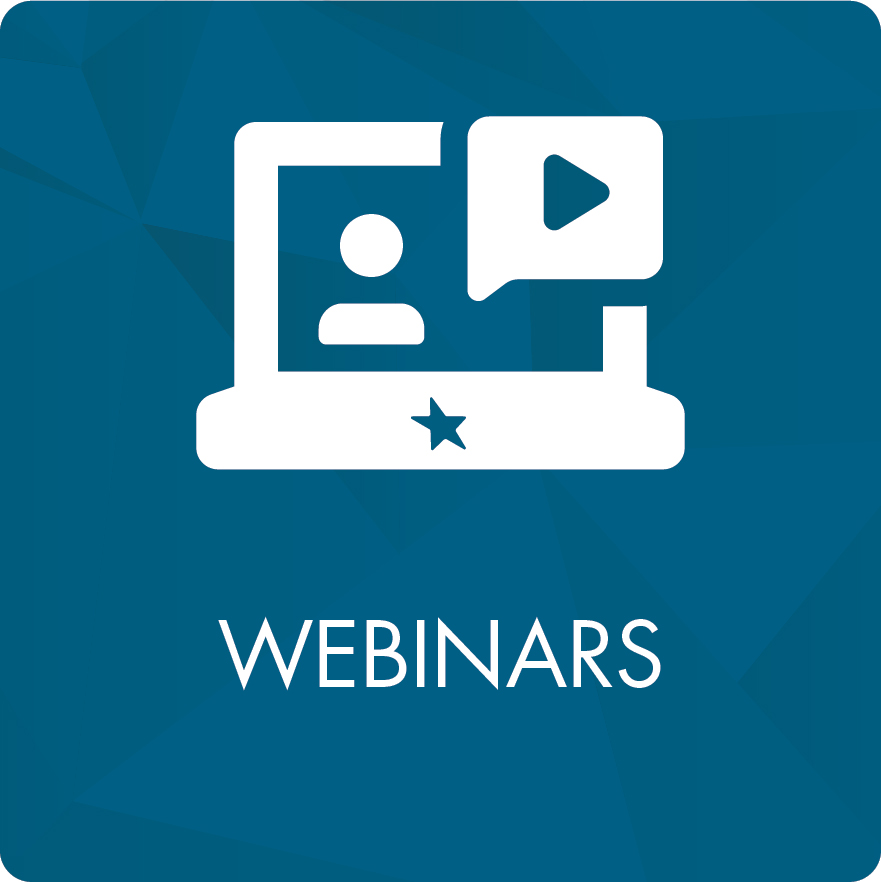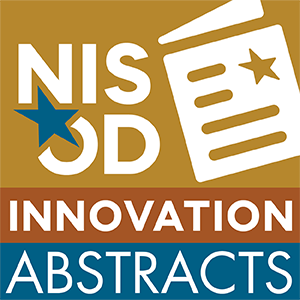Sample of Member-Only Resources
Faculty, administrators, and staff at member colleges are able to take advantage of every benefit NISOD has to offer throughout the year. Below is a sampling of the webinars and Innovation Abstracts articles that are available to individuals at NISOD member colleges.
Webinars
NISOD schedules a series of year-round, high-quality, and thought-provoking webinars led by community and technical college leaders and other experts in the field. NISOD webinars enable faculty members to conveniently learn about best practices and cutting-edge research related to effective teaching. Each webinar, a free benefit for NISOD-member colleges, includes action-oriented, measurable, and learning-focused objectives that will help faculty members improve their teaching techniques for online, hybrid, blended, and face-to-face courses. The combination of powerful expertise and interactive technology promises to bring new life to professional development on campuses around the world.
How to Engage the Unmotivated Learner
This webinar provides individuals with a wide range of strategies and techniques to help promote student engagement in the classroom and online. Strategies include ideas for relationship-building, personalization of learning, content connections, and technology integration. Presenters share personal experiences and success stories from their combined 35+ years of teaching at-risk, low-performing, and unmotivated students at the K-12 and collegiate levels. Individuals leave the webinar with multiple tools to add to their student-engagement toolkit that can immediately be applied in the classroom. This session is applicable to teachers and instructors at all levels and of all content areas.
Learning Outcomes:
- List and describe at least two technology tools that can be implemented into the classroom to help promote engagement.
- Identify the importance of building relationships with students and creating a high-trust, low-stress environment.
- Name and use multiple strategies that promote student engagement and can be implemented immediately in a course.
Somer Stuhlsatz, Instructor, Math, North Kansas City School District; Vanessa Zamzow, Adjunct Instructor, Education, Metropolitan Community College
Pandemics, Politics, and People: The Adaptive Skills Community College Leaders Need to Meet Today’s Challenges
The contemporary challenges community college leaders face are increasingly complex and must be addressed with a new approach to leadership. Adaptive challenges, such as the impact of COVID-19, changing student population demographics, local economic and political challenges, and unique and complex personnel issues, do not have easy solutions. They require an adaptive leader equipped with a unique set of strategies, including: Engaging in critical self-reflection; tailoring communication to the situation and audience; dissociating from the problem; analyzing the issue by listening to diverse perspectives; managing emotional responses with sensitivity; empowering those who are change-averse; and challenging assumptions with data. This webinar is especially relevant to community college leaders and aspiring leaders, but all who are interested are welcome to attend.
Learning Outcomes:
- Participants define adaptive leadership and its applications to community college leadership.
- Participants analyze several case studies and evaluate which strategies would be best used to resolve the adaptive challenges presented.
- Participants apply the concept of adaptive leadership and its related practices to their own work contexts at community colleges.
Jill Channing, Department Chair and Associate Director of the Center of Community College Leadership, Educational Leadership and Policy Analysis, East Tennessee State University; Pamela Scott, Professor of Educational Leadership and Policy Analysis, Educational Leadership and Policy Analysis, East Tennessee State University
Innovation Abstracts
Every other week during the academic year, faculty, administrators, and staff at NISOD member colleges receive Innovation Abstracts, NISOD’s flagship teaching and learning publication that is written by and for community and technical college practitioners. Innovation Abstracts provides members with creative ideas about programs, projects, and strategies to improve students’ higher education experiences. Members are also able to search through over 40 years of Innovation Abstracts in NISOD’s online archives.
Building Online Instructional Course Materials With Accessibility and Accommodation in Mind
Volume XLIV, No. 18 | November 3, 2022
In this week’s Innovation Abstracts, Andrea McDonald, Assistant Professor, Department of Health and Kinesiology, Prairie View A&M University; and Isabella Granderson, Lecturer, University of the West Indies, illustrate how faculty can design their courses to be more accessible.
Midsemester Evaluations of Teaching: Strengthening Faculty Development in Rapidly Changing Times
Volume XLIV, No. 4 | March 3, 2022
In this week’s Innovation Abstracts, Skylar Davidson, Assistant Professor, Chattanooga State Community College, explores how midsemester assessments can encourage a growth mindset, build transparency and rapport, and increase digital literacy.
Ready, Click, Play! Using Split Screens, Annotations, and Fun Games During Remote Learning Sessions
Volume XLIII, No. 26 | September 9, 2021
In this week’s Innovation Abstracts, Naylet Leon, Assistant Professor, Broward College, explores classroom strategies that enhance remote learning.
Like what you’re seeing? Sign your college up to become a NISOD member!
The resources listed above are just a brief preview of the many high-quality benefits NISOD provides to member colleges. Sign your college up today for a modest annual fee based on your campus’s full-time enrollment and everyone at your institution can immediately start enjoying the benefits of being a NISOD member!
Still have questions? Contact us at (512) 471-7545 or via email at membership@nisod.org.



